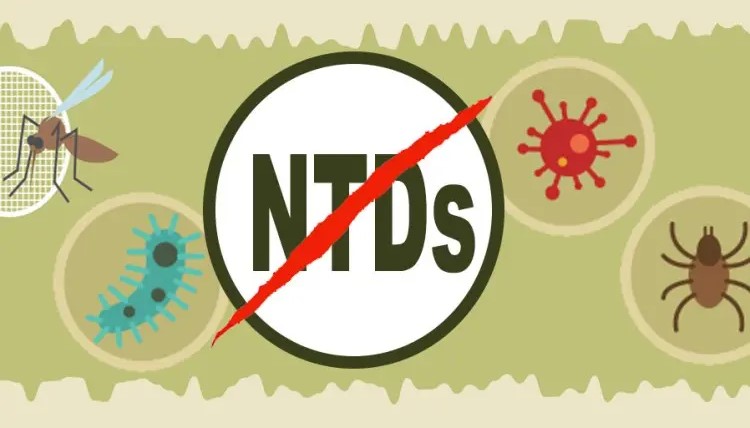
The Federal Government says insecurity, diversion and theft of medicines are threatening the fight against Neglected Tropical Diseases in the country.
The National Coordinator for NTDs in the Federal Ministry of Health, Fatai Oyediran, who disclosed this in an interview with our correspondent, also said paucity of funds were challenges facing the fight against the disease.
NTDs are a diverse group of 20 conditions that are mainly prevalent in tropical areas, where they affect more than one billion people who live in poor communities. They are caused by a variety of pathogens including viruses, bacteria, parasites, fungi and toxins. The diseases cause devastating health, social and economic consequences to more than one billion people.
The diseases are “neglected” because they are almost absent from the global health agenda, receive little funding, and are associated with stigma and social exclusion.
Nigeria carries around 25 per cent of Africa’s NTDs burden, making it one of the most endemic countries in the world with debilitating conditions.
The NTDs in Nigeria include elephantiasis, soil-transmitted helminthiasis, river blindness, trachoma, schistosomiasis, snakebites, leishmaniasis, Human African Trypanosomiasis, mycetoma, rabies, leprosy, yaws, fascioliasis and scabies.
“One of the challenges in NTDS, not only trachoma, is insecurity where people cannot access some places, or people are being killed. Even if you have the energy or the wherewithal to intercede in such areas, you cannot go because your safety comes first,” he said.
He, however, said the government was strategising on how to fight the diseases in states battling insecurity.
Speaking further on the challenges in eliminating NTDs, he stated, “Theft or diversion of medicines is another challenge we are facing. The drugs we use for trachoma are not only meant for trachoma, there are other things that they are being used for.
“You will recall during the Covid-19 pandemic that some people went for Mectizan because they believed it was good for the treatment of Covid-19. So people went all out to buy the drug, and some staff that are compromising sold to those people and it is being stolen somehow. But we are putting in place measures to curb these excesses.
“We are collaborating with the foods and drugs department to get the logistics management on ground so that we will be able to track every medicine and there will be monthly reports on drugs released and drugs on the road.”
He noted that the other challenge they had was resource mobilisation for NTDs, adding, “We don’t have enough funds. Having more funds for NTDs programmes will help in eliminating the diseases and it will help us re-evaluate our strategies to put us back on track.”
Speaking on the elimination of trachoma in the country, Oyediran noted, “At inception in 1988, we had about 34 million Nigerians at risk of trachoma, but presently we have just about 3.5 million people who are at risk. So, a lot of work has gone into it, and that led to the reduction in the number of people who are at risk and this could not have been achieved without the strategies we put in place, together with our partners, to achieve this reduction.”





